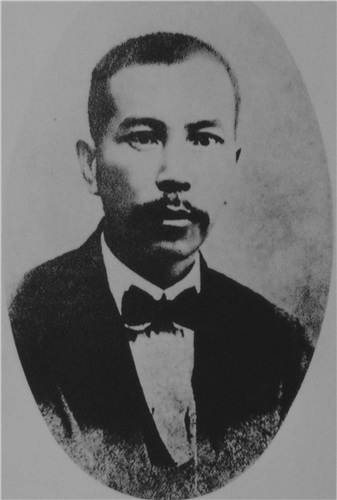Generations on, influence of Chinese philanthropist remains


"To Tan Kah-kee, money should be treated like fertilizer, spread around as much as possible for best effect," Peggy Tan says. "In short, that wealth should not be hoarded, but used extensively for the betterment of society," she adds.
Peggy Tan recalls, "A few years ago, some students of Pioneer Junior College in Singapore were sent on a trip to Ji Mei where they learnt about Tan Kah-kee's history. When they came back, they said they were so shocked that he didn't leave a single cent to his grandchildren!"
Altruism and education
A humanitarian at heart, Tan channelled his wealth into philanthropic pursuits such as education. He wanted to lift large numbers of people out of poverty and offer them hope for a brighter future.
Back in the 20th century in Ji Mei, education was seen as a pastime of the elite, and was thought to be useless by the working class, who wanted their children to help with farming and fishing.
Determined to help poor children realize their potential, Tan set up schools in China, such as the Ji Mei School in his hometown, which officially opened in 1913.
He also displayed remarkable foresight and introduced into China practical subjects like agriculture, marine navigation, deep-sea fishing commerce, followed by academic subjects like maths, chemistry, history and geography.
In 1919, he founded The Chinese High School (now known as Hwa Chong Institution) in Singapore, the first Chinese institution of higher learning at that time in Southeast Asia, catering to Chinese dialect groups among the overseas Chinese.
These schools put emphasis on teaching deep-seated morals, such as the concept of frugality, patriotism, respect for teachers and elders, honesty and integrity.
Keeping legacy alive
Tan's descendants are proud of how he mobilized 3,200 volunteer drivers and mechanics from Singapore, Malaysia and Myanmar to transport military supplies to China during war.
Today, descendants of those mechanics continue to meet with Tan's descendants in Ji Mei for important anniversaries.
Peggy Tan also brought 60 descendants of Tan on a two-week tour in October 2018 to retrace the routes the mechanics had traveled between 1939 and 1942. During the trip, she told stories about Tan to the younger generation.
Back in China, Tan remains highly regarded.
After the outbreak of COVID-19, they received boxes of masks from the Chinese to help Tan's family members through the crisis, she adds.
On what Tan would have thought of the COVID-19 situation if he were alive today, Peggy Tan says he would have "certainly organized mercy missions to help".
"He would be even more surprised to find out that after two to three months, the whole situation has reversed (in China) and it was China that is rushing to help much of the world, with medical supplies and various aids," she says.
Despite many of Tan's descendants living in different countries all over the world, she says they continue to carry a deep connection with Singapore and China.
"They continue to feel this powerful call to return to discover their roots," Peggy Tan says.
Xinhua




































